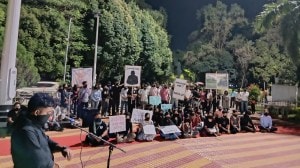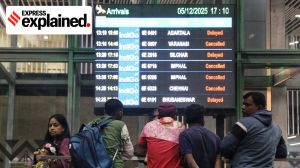Central govt investing heavily in growth of telecom sector: MoS IT
Speaking to reporters, he said that the government was investing in and growing the overall market capitalisation of the telecom sector. He added that the sector is playing a big role in expanding the size of the digital economy.
 Rajeev Chandrasekhar, Minister of State for Electronics and IT
Rajeev Chandrasekhar, Minister of State for Electronics and IT In the coming years, telecommunication-related technologies could undergo a significant change and become very different from the existing ones, presenting ample opportunities for more players in the market, Rajeev Chandrasekhar, Minister of State for Electronics and IT, said Wednesday.
Speaking to reporters, he said that the government was investing in and growing the overall market capitalisation of the telecom sector. He added that the sector is playing a big role in expanding the size of the digital economy.
“There was a flight of capital and flight of foreign investors. A large number of telecom international brand names that invested in India, left because their businesses were destroyed mainly due to corruption or crony capitalism,” Chandrasekhar said.
The Centre is now investing heavily in ramping up technology infrastructure across the country and also reshaping key legislations in the technology and telecom sectors.
Chandrasekhar emphasised that India has seen rapid deployment of 5G technology, with over 700 districts already having 5G coverage.
“About 83 crore Indians are connected to the Internet and we are the world’s largest connected country and largest connected democracy. In 2014, this number was just a fraction. By 2025-26, we anticipate that 120 crore Indians will be connected to the Internet,” Chandrasekhar said.
“We are the second-fastest rolling 5G network in the world. And over 700 districts in India have already had 5G coverage. Over 500,000 base stations have been rolled out in this cutting-edge technology and we are already having a vision and a roadmap for 6G,” he added.
He also criticised the previous United Progressive Alliance (UPA) government for what he described as the “lost decade” in telecom, alleging that the sector was marred with scams and controversies under the Congress-led alliance.
“BSNL which was a $6 billion company in 2004 had become a loss-making company by 2014,” said the minister.
Under the National Democratic Alliance (NDA) government, Chandrasekhar said that the telecom sector has reduced dependency on imported equipment, adding that up until 2014, about 85 per cent of the telecom gear was imported while now 100 per cent was made in India and even exported to geographies like North America.
- 01
- 02
- 03
- 04
- 05































